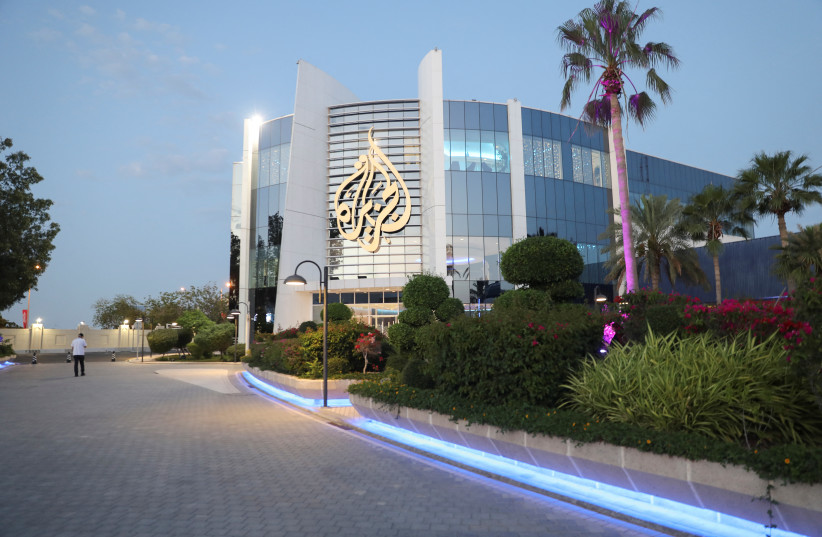Qatar’s Foreign Ministry announced last week that an upcoming fourth round of international talks on Afghanistan is to take place in Doha. In a recent meeting in New York, the UN under-secretary-general for political and peace-building affairs met with Qatar’s permanent representative to the UN to discuss the upcoming meeting. The objectives of the talks were to integrate Taliban-ruled Afghanistan into the global community and to advance women’s rights in the country.
However, while the Taliban regime gains international recognition, women’s rights status in the country deteriorated. In the same week of the Qatari announcement, Afghan women were forbidden from praying loudly or reciting the Quran in front of other women.
This contradiction didn’t occur for the first time. As the UN wrapped up its third meeting, Kabul clothing stores were ordered to cover the faces of their mannequins. The Taliban flogged the largest number of Afghans for “immoral relations,” and the sound of women’s voices singing as well as women reading in public became a crime.
The third meeting, also hosted in Doha, the Qatari capital, served a clear purpose for the international community: to raise awareness about the dire humanitarian situation in Afghanistan and improve the situation of Afghan women. Moreover, Qatar announced its “keenness to enhance the active participation of Afghan women”.
Unsurprisingly, like the two meetings that came before it, this meeting achieved neither. Moreover, there was an international outcry due to the exclusion of Afghan women. The host, Qatar, however, achieved its goals of promoting its brand as a humanitarian-minded mediator and Doha as a world capital.

For years, the failure of diplomatic initiatives like this one has shined a light on the inevitable clash of values present at their core, leading to the perpetuation of issues like the turmoil in Afghanistan, with no resolution for women’s rights in sight. This is because events like these are promoted by the UN to create the groundwork for a diplomatic breakthrough, while the Qatari organizer’s goal remains completely different.
Qatar's interest
Qatar’s interest in hosting such events is to boost its own reputation, continue its long-held policy of non-alignment with any nation, and erase its own human rights abuses from public view. It has little interest in pressuring the Taliban, with the Qatari transportation minister just last week signing a memorandum of understanding to increase air traffic rights between Qatar and Afghanistan.
The legitimizing of the Taliban led Qatari ministers to meet with Sirajuddin Haqqani, who is on the FBI’s most wanted list. One might suggest that the continuance of the crisis is useful to Qatar because it continues to present the emirate as a crucial partner.
SINCE ITS peaceful coup in 1995, Qatar has positioned itself as a global player through a policy that has gone unchallenged by much of the international community, despite it being at their expense. The small gas-rich nation has hosted the largest US military base in the Middle East while damaging America’s reputation through the state-run broadcaster, Al Jazeera; promoted peace in the region while backing armed groups; and maintained a close relationship with Washington while being very friendly with Iran.
Despite these inconsistencies, the nation has been rewarded with American-made weapons and designated a major non-NATO ally. Russia has used Doha to mediate the release of Ukrainian children, and China has recently enhanced its ties with Sinopec signing a 27-year deal to receive four million tons of Qatari liquified natural gas annually.
France, meanwhile, agreed to have Qatari security forces help secure the 2024 Paris Olympic Games, continuing Doha’s effort to project itself as an expert in hosting and protecting major international events.
Qatar has a track record of advancing its own interests at any cost. Why, then, would anyone believe that it is not doing the same with Afghanistan-focused talks that took place in Doha?
Qatar has a much-lauded history of being a relatively neutral party in Afghanistan. In the 1990s, it did not officially recognize the Taliban but maintained useful relations with it. Since the 1970s, it has been friendly with Washington. It would make sense why some view Doha as an attractive destination for negotiations on the future of Afghanistan.
Upon closer examination, however, there is little doubt that the talks in Doha are not effective. Little progress has been made, and Qatar has little to offer in terms of neutrality to the West vis-á-vis the Taliban on the issue of women’s rights, despite its public statements to the contrary. The consequence of this has been Qatar’s success in presenting itself as a neutral messiah on Afghanistan-related issues, while the talks consistently produce little success.
This fits the familiar Qatari pattern where Doha is presented as a relevant party and leader in conflict resolution, while the rest of the world walks away at the end with little progress. America and the Taliban remain in a deadlock, while Doha’s glitz and glamor appear on television screens. The world loses and Qatar wins.
The UN Afghanistan-focused conference in Doha was never meant to solve the issue of women’s rights in Afghanistan. It was meant to advance Qatar’s image. It is about time that world leaders take notice.
Ariel Admoni is a PhD student in Middle Eastern studies at Bar-Ilan University. You can follow him on X @arieladmoni. Yahel Tamir is an undergraduate student at the University of Pennsylvania.
